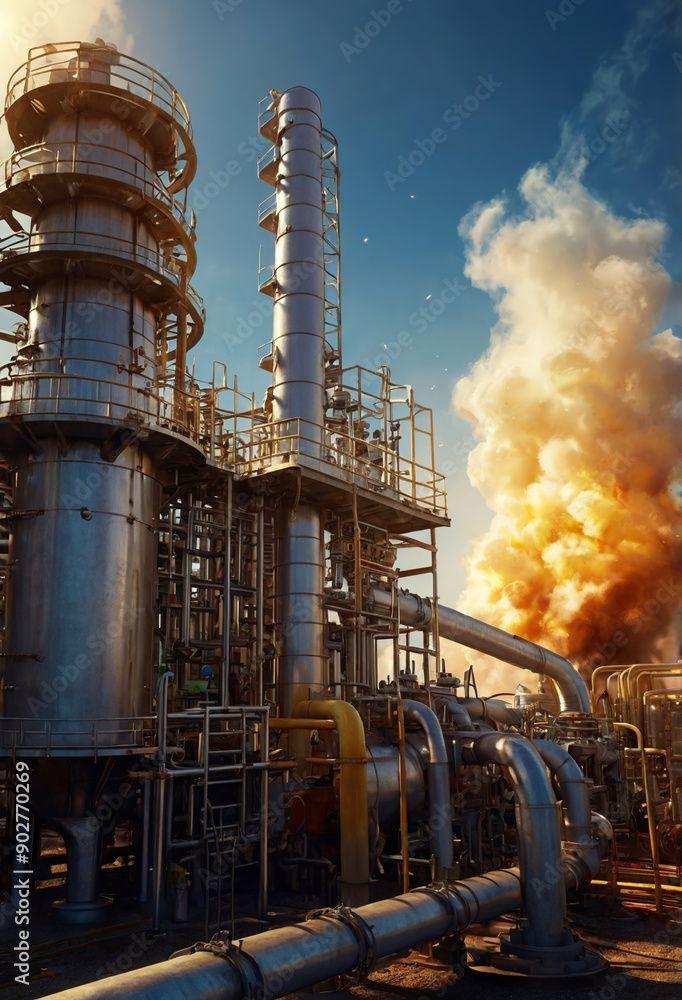Website designed with the B12 website builder. Create your own website today.
Start for free
Chemical petrochemical engineering stands at the forefront of modern industrial processes, bridging the gap between chemistry and engineering to transform raw materials into valuable products. This dynamic field encompasses a wide array of topics, making it an essential course for aspiring engineers interested in energy, materials, and sustainability. In our blog post, we will explore the fundamentals of chemical petrochemical engineering as a course, providing insight into what students can expect to learn and the foundational concepts that drive this discipline.
As students navigate their academic journey from entry-level courses to graduation, they discover the vast potential of this field, including the skills and knowledge required to thrive as a chemical petrochemical engineer. We will also delve into the compelling reasons why prospective students should consider this path, along with the diverse specializations available and the multitude of career opportunities awaiting graduates, whether as employees in established industries or as independent entrepreneurs. Join us as we uncover the exciting realm of chemical petrochemical engineering and the critical role it plays in shaping a sustainable future.
Understanding the basics: Introduction to chemical petrochemical engineering as a course
Chemical petrochemical engineering serves as a crucial foundation for aspiring engineers interested in the production and processing of chemicals and fuels derived from petroleum and natural gas. This multidisciplinary course combines principles from chemistry, physics, and mathematics, equipping students with the knowledge needed to tackle real-world challenges in the petrochemical industry. By understanding the fundamental processes involved in converting raw materials into valuable products, students can appreciate the intricate balance between innovation, sustainability, and economic feasibility.
As students delve into the curriculum, they will encounter a rich mix of theoretical knowledge and practical applications. Courses often cover essential topics such as thermodynamics, fluid mechanics, reaction engineering, and materials science, providing a robust framework for understanding various chemical processes. Furthermore, students gain hands-on experience through laboratory work and industry-focused projects, which enhance their problem-solving abilities and prepare them for the dynamic nature of the field. Engaging with these subjects not only ignites passion but also instills the confidence necessary to excel in various roles within the industry.
From classroom to career: The journey through chemical petrochemical engineering, from entry level to graduation
Embarking on a journey in chemical petrochemical engineering begins with a solid foundation in the fundamental principles of chemistry, physics, and mathematics. Students dive deep into subjects such as thermodynamics, fluid mechanics, and reaction engineering, which equip them with essential knowledge for understanding how to design and optimize processes that convert raw materials into valuable products. Throughout the course, hands-on laboratory studies and simulations allow students to apply theoretical concepts in practical settings, fostering critical thinking and problem-solving skills essential for real-world applications. This blend of theoretical and practical learning prepares students for the challenges they will face in the industry.

As students progress through their educational journey, they encounter specialized coursework that reflects the diverse fields within chemical petrochemical engineering, such as refining, petrochemical production, and environmental engineering. Internships and cooperative education programs provide invaluable experience, enabling students to work alongside professionals and gain insight into the industry. Networking opportunities during conferences and workshops further enhance their understanding and connect them with potential employers. Upon graduation, chemical petrochemical engineers emerge as well-rounded professionals, ready to tackle complex challenges and make significant contributions to the evolving landscape of energy and materials production.
Unlocking opportunities: Why study chemical petrochemical engineering and the diverse career paths available
Studying chemical petrochemical engineering opens doors to a wealth of opportunities in a multi-faceted industry. This field equips students with a deep understanding of chemical processes and the ability to design and manage operations that transform raw materials into valuable products. As global demand for energy and materials continues to rise, the need for skilled engineers who can innovate sustainable solutions grows stronger. By pursuing a degree in this discipline, students position themselves at the forefront of technological advancements that address pressing challenges, such as environmental sustainability and efficient resource management.
Chemical petrochemical engineers have the flexibility to specialize in various areas that reflect their interests and passions. Some may choose to focus on process design, safety management, or environmental engineering, while others might delve into petrochemicals, polymers, or renewable energy systems. With this diverse skill set, graduates can find employment in oil and gas companies, chemical manufacturing industry, consultancy firms, or even research institutions. Additionally, the entrepreneurial spirit drives many engineers to start their own companies, allowing them to innovate and explore new technologies in the petrochemical sector. The breadth of opportunities makes studying chemical petrochemical engineering an attractive and strategic choice for prospective students.